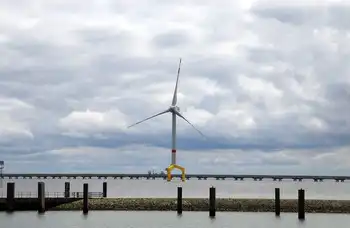Initiative Ads aim to spark grid improvement
By Electricity Forum
Substation Relay Protection Training
Our customized live online or in‑person group training can be delivered to your staff at your location.

- Live Online
- 12 hours Instructor-led
- Group Training Available
The Galvin Electricity Initiative launched the “Sad Socket” public education campaign to draw attention to the dangers and inefficiencies of the outdated U.S. electric power system and encourage policy makers and state regulators to change the way utilities do business. The ads will appear in The Wall Street Journal, The Boston Globe, the Chicago Tribune and The Washington Post. An accompanying Web site — www.galvinpower.org/socket — offers policy solutions and suggests what consumers can do to conserve electricity, save money and join the movement to renew our electricity grid.
Responding to defects in the current electricity grid, the campaign asserts seven policy priorities that will remove regulatory obstacles to modernizing the grid and create a more reliable, efficient and secure electric power system:
1) Base utility compensation on reliability, efficiency and customer service.
2) Give utilities incentives to provide customers with time-of-use rates.
3) Foster competitive free markets for electricity delivery and distribution.
4) Enable smart microgrids.
5) Require higher reliability standards for electricity distribution grids.
6) Establish new energy efficiency standards that conserve power.
7) Set-up tax codes to foster grid innovation.
“It is too costly, not to mention unsafe and entirely wasteful, to continue powering our digital economy on antiquated technology,” said Robert W. Galvin, founder of the Galvin Electricity Initiative and retired CEO and chairman of Motorola, Inc. “The technology to transform the electric power system exists right now. But until all of us demand state policies that put smart technology, cost structures based on time-of-use, plus true retail service competition into place, we’ll be stuck with the costly, inefficient dinosaur of a system we have now.”
Political will and changes in regulatory policy are necessary to facilitate these advances and transform a power system that costs U.S. businesses, public institutions and homes more than $150 billion a year in waste and power outages. While federal support for smart grid research and investment, as provided for in the Energy Independence and Security Act of 2007, is important, the “Sad Socket” campaign insists that states hold the key to motivating electricity distribution utilities to give consumers the power of choice, and to make changes that urgently modernize the grid.
“’Sad Socket’ highlights states that are making progress in grid transformation,” said Kurt Yeager, executive director of the Galvin Electricity Initiative. “We are working with change leaders, developers and universities in Massachusetts, Illinois and New Mexico to transform the quality of power delivery while collaborating with policy makers and regulators to remove outmoded policy and regulatory barriers so that everyone benefits from system renewal. Broad public understanding and support is crucial to success.”











